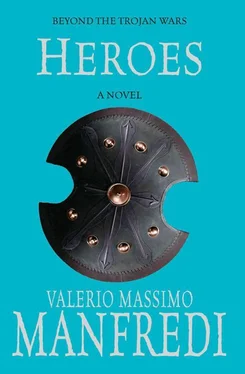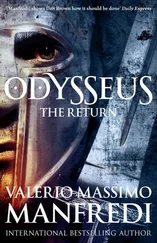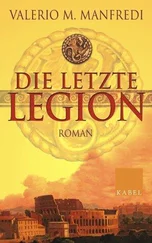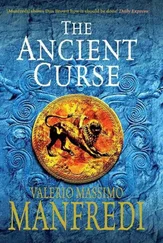Valerio Manfredi - Heroes
Здесь есть возможность читать онлайн «Valerio Manfredi - Heroes» весь текст электронной книги совершенно бесплатно (целиком полную версию без сокращений). В некоторых случаях можно слушать аудио, скачать через торрент в формате fb2 и присутствует краткое содержание. Жанр: Исторические приключения, на английском языке. Описание произведения, (предисловие) а так же отзывы посетителей доступны на портале библиотеки ЛибКат.
- Название:Heroes
- Автор:
- Жанр:
- Год:неизвестен
- ISBN:нет данных
- Рейтинг книги:3 / 5. Голосов: 1
-
Избранное:Добавить в избранное
- Отзывы:
-
Ваша оценка:
- 60
- 1
- 2
- 3
- 4
- 5
Heroes: краткое содержание, описание и аннотация
Предлагаем к чтению аннотацию, описание, краткое содержание или предисловие (зависит от того, что написал сам автор книги «Heroes»). Если вы не нашли необходимую информацию о книге — напишите в комментариях, мы постараемся отыскать её.
Heroes — читать онлайн бесплатно полную книгу (весь текст) целиком
Ниже представлен текст книги, разбитый по страницам. Система сохранения места последней прочитанной страницы, позволяет с удобством читать онлайн бесплатно книгу «Heroes», без необходимости каждый раз заново искать на чём Вы остановились. Поставьте закладку, и сможете в любой момент перейти на страницу, на которой закончили чтение.
Интервал:
Закладка:
The girl lowered her head with a little smile, then approached him; taking a sponge, she dipped it in the hot water and squeezed it over his head, his back and his shoulders, as he closed his eyes and stretched out his legs in the stone tub, savouring the pleasure of the water’s warm caress.
Hermione passed the sponge to one of the handmaids, who continued to wash the prince, and she sat down to supervise the guest’s bath, as befitted her rank.
‘You know,’ she said, ‘just a short time ago Telemachus, the son of Ulysses, bathed in that tub. It was a day of celebration; I was about to depart with my dowry, to become Pyrrhus’s bride at Phthia in Thessaly. Telemachus had arrived from Pylus together with Pisistratus and we offered him hospitality here at the palace; he was seeking news of Ulysses. But my father did not have much to tell him. He did offer to help throw out the suitors who invade his father’s house, but Telemachus refused. He said that he was sure that his father would return and annihilate them all. He is a nice boy, Telemachus, gentle and good. Pisistratus has become his good friend, and I hope that one day he will find a bride worthy of him.’
‘If you were about to go to Phthia that day, how is it that you are still here?’ asked Orestes with a certain anxiety.
‘Because Pyrrhus is no longer there. His grandfather Peleus refused to keep him in his house, and he left for Buthrotum in Epirus. It would have been too long and dangerous a journey for me. I will go later, if we win the war; he will come here to fetch me.’
Orestes couldn’t take his eyes off her as she was speaking. When he had finished, he stood up, and the handmaids covered him with a big linen cloth that Marpessa had taken from a chest. They dried him and dressed him with a fresh tunic, handsomely embroidered in bright colours at the hem. Helen’s brother Castor had worn it one day, before the gods had called him to their abode. Orestes turned towards the nurse and said: ‘Grandmother, prince Pylades will have unharnessed the horses by now and he will be entering the palace. Go receive him as well, please, and have a bath prepared for him.’
The old woman nodded and walked away down the corridor. Orestes drew close to Hermione as the handmaids were dressing him and pouring perfume on his hair. He touched her cheek with a light caress. ‘If you were not already promised,’ he said, ‘I’d ask for you myself.’
The girl started slightly. ‘Do you mean that?’ she asked.
The prince answered with a look worth more than many words. He remained silent, contemplating her, and then said: ‘Have you ever seen him?’
‘No,’ said the girl. ‘But if we want to win this war, his strength is indispensable. That’s what my father the king says.’
‘We’ll win in any case,’ said Orestes. ‘We have justice on our side.’
‘If Pyrrhus fights with us, the conflict will be shorter. The king believes that we can also thus prevent others from convincing him to join them against us. The scale will be tipped in favour of whoever he takes sides with. Those who have seen him fight say he is an invincible fury. Like his father,’ she said, her voice growing softer, ‘but. . fiercer, more cruel.’
Orestes took her hand and clasped it between his own. ‘I would treasure you like a precious gem,’ he said, ‘like ripe grapes in the vineyard. .’
Hermione’s gaze trembled, her dark, shiny eyes became moist. ‘If the war is shorter, there will be fewer losses, less blood spilt, understand? Too much has already been shed.’
Orestes tried to say something else, but his voice died in his throat. Hermione pulled back her hand, gently, and went towards the door that led to her apartments. Before disappearing, she turned back towards him and bade him farewell with a look. In the uncertain light of the lamps, the prince thought he saw a tear glittering on her ivory cheek.
‘He won’t have you,’ he said.
The king himself, Menelaus the Atreid, came to receive him at the door of the great hall. He was flanked by two warriors from the army of Ilium, for they were the only ones he trusted.
The king strode towards him and greeted him with a warm embrace, then preceded him into the banquet room. Marpessa reappeared and gave orders to bring tables and food, and the prince began to eat eagerly, because he hadn’t stopped during the day and the bath had made him hungry.
‘Prince Pylades is with me,’ he said. ‘He will lead the Phocian army at our side.’
‘Excellent,’ said the king. ‘He will be a welcome guest in Hippasus’s house tonight; they will see to the plan of battle. King Nestor of Pylus will be sending the warriors who fought at Ilium under the command of Pisistratus, the strongest of his sons. Another allied army is descending from Epirus; it is led by the son of Achilles, Pyrrhus, who has sworn to help us. You will lead the chariot charge with me, if they dare to challenge us on an open field.’ Orestes listened, but his eyes seemed to drift away at times. When they had finished dinner, the king had the tables cleared but had them leave the wine.
‘Your aunt, the queen,’ said Menelaus, ‘regrets that she was not with me to receive you at the door, but she will be joining us soon.’
Orestes seemed disconcerted; a troubled look crossed his eyes, an ill-concealed embarrassment.
‘I understand,’ said the king, ‘I know what you are thinking. .’
‘My sister Iphigeneia. . and my father died because of her,’ said the prince, a sudden chill in his voice.
‘It’s not the way you think,’ said the king. ‘And it is time that you know the truth. That’s why I had you come.’
The queen entered at that moment and greeted him: ‘Welcome to this house, son.’ But Orestes barely managed to bow his head. Her presence obviously created deep discomfort in the boy.
‘The tunic of my beloved brother fits you well,’ observed the queen. Her gaze was veiled with sadness and regret.
‘Helen was not the cause,’ said Menelaus. ‘She was, instead, one of the combatants. Perhaps the most formidable of us all.’
The youth gave the queen an astonished look. She seemed not to notice, lowered herself into a chair and put her feet up on an elegant ivory-adorned stool.
The prince shook his head, bewildered. The king rose, poured wine into the young man’s cup and waited until he had drunk it, then said: ‘Get up and come with me.’
Orestes followed him without understanding what was happening. Before starting down the corridor, he turned back a moment to see the queen sitting there, as lovely as a goddess; she smiled at him. They soon reached a sort of gallery, closed off by screened shutters.
‘Come,’ said the king. ‘Look.’
Orestes neared the screen from which a reddish glow filtered. The room he saw was illuminated; there was a girl there, playing a lyre and singing, while others around her spun wool of beautiful colours. At the centre, sitting at a large loom, was a woman whose head was covered with a light blue veil. He could only see her hands, her long, delicate fingers flying swiftly over the weft, passing the reel back and forth. Woven into the top part of the cloth was a peaceful scene, a shepherd guiding his sheep to a blue-watered spring. Green meadows surrounded them. The lower part showed a scene of war: a ship leaving port with warriors seated at the thwarts, manning the oars; they were departing to wreak destruction across the sea. Weeping women waved at them from the beach, their heads covered by black veils as if they were following a funeral litter.
The lyre suddenly stopped, the woman’s sweet voice fell still and the lights dimmed. The woman sitting at the loom rose to her feet and turned around: it was Helen of Sparta, the bride of Menelaus the Atreid.
Читать дальшеИнтервал:
Закладка:
Похожие книги на «Heroes»
Представляем Вашему вниманию похожие книги на «Heroes» списком для выбора. Мы отобрали схожую по названию и смыслу литературу в надежде предоставить читателям больше вариантов отыскать новые, интересные, ещё непрочитанные произведения.
Обсуждение, отзывы о книге «Heroes» и просто собственные мнения читателей. Оставьте ваши комментарии, напишите, что Вы думаете о произведении, его смысле или главных героях. Укажите что конкретно понравилось, а что нет, и почему Вы так считаете.












